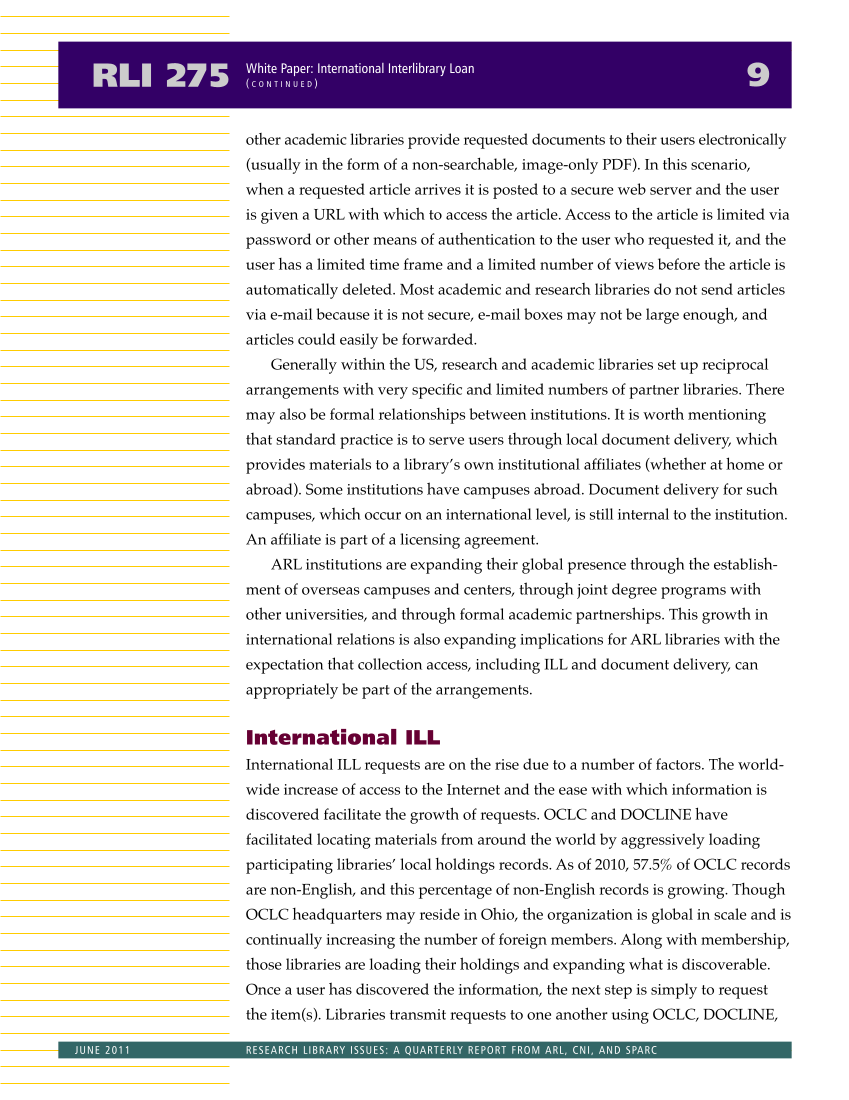other academic libraries provide requested documents to their users electronically (usually in the form of a non-searchable, image-only PDF). In this scenario, when a requested article arrives it is posted to a secure web server and the user is given a URL with which to access the article. Access to the article is limited via password or other means of authentication to the user who requested it, and the user has a limited time frame and a limited number of views before the article is automatically deleted. Most academic and research libraries do not send articles via e-mail because it is not secure, e-mail boxes may not be large enough, and articles could easily be forwarded. Generally within the US, research and academic libraries set up reciprocal arrangements with very specific and limited numbers of partner libraries. There may also be formal relationships between institutions. It is worth mentioning that standard practice is to serve users through local document delivery, which provides materials to a library’s own institutional affiliates (whether at home or abroad). Some institutions have campuses abroad. Document delivery for such campuses, which occur on an international level, is still internal to the institution. An affiliate is part of a licensing agreement. ARL institutions are expanding their global presence through the establish- ment of overseas campuses and centers, through joint degree programs with other universities, and through formal academic partnerships. This growth in international relations is also expanding implications for ARL libraries with the expectation that collection access, including ILL and document delivery, can appropriately be part of the arrangements. International ILL International ILL requests are on the rise due to a number of factors. The world- wide increase of access to the Internet and the ease with which information is discovered facilitate the growth of requests. OCLC and DOCLINE have facilitated locating materials from around the world by aggressively loading participating libraries’ local holdings records. As of 2010, 57.5% of OCLC records are non-English, and this percentage of non-English records is growing. Though OCLC headquarters may reside in Ohio, the organization is global in scale and is continually increasing the number of foreign members. Along with membership, those libraries are loading their holdings and expanding what is discoverable. Once a user has discovered the information, the next step is simply to request the item(s). Libraries transmit requests to one another using OCLC, DOCLINE, RLI 275 9 White Paper: International Interlibrary Loan ( C O N T I N U E D ) JUNE 2011 RESEARCH LIBRARY ISSUES: A QUARTERLY REPORT FROM ARL, CNI, AND SPARC





























